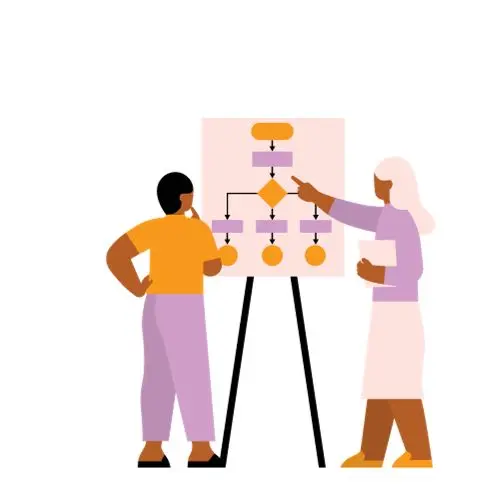Few predicaments are as emotionally painful as realizing that you singlehandedly ruined an important relationship. Whether it was betraying your partner’s trust, taking them for granted, or any number of selfish behaviors – watching a treasured bond crumble due to your actions elicits deep regret and sadness.
The natural questions arise: now what? Is there any coming back from this? How do I even begin to repair the damage I’ve caused?
While the work involved is challenging, even relationships strained to their limits can be mended through consistent effort centered on accountability, communication, and positive change. Implement the following step-by-step guide to fix a relationship you’ve ruined.
Table: Key Strategies for Fixing a Ruined Relationship
| Stage | Goals | Strategies |
|---|---|---|
| Initial Reflection Stage | Understanding root issues clearly | Don’t make assumptions; be objective in recalling what occurred |
| Accountability Stage | Taking complete responsibility | Apologize genuinely without defensiveness, acknowledge the harm done |
| Listening Stage | Learning the depth of injury from their lens | Let them express hurt without interrupting, ask clarifying questions |
| Vision Stage | Charting a thoughtful path forward | Set aligned relationship expectations and identify personal areas for self-improvement. |
| Change Stage | Turning intentions into positive habits | Be consistent with discussed changes; follow-through is crucial |
| Rebuilding Trust Stage | Healing wounds through effort and empathy | Meet their emotional needs, even if gradual, show you want investment |
Stage 1: Initial Reflection
In the aftermath of a damaging conflict or betrayal, emotions run high for both parties. Before determining how to fix things, you must reflect objectively on what happened without assumptions. Reconstruct the timeline of events clearly in your mind. Details matter here – don’t downplay harms through rosy retrospection. Face what occurred and how circumstances unfolded head-on to understand what needs fixing.
Ask yourself thoughtful questions to spark introspection:
- What core issues created relationship problems? Reflect on the roles you played in stoking or enabling them.
- At what key moments did the situation escalate out of control? What warning signs did you ignore or miss?
- What vulnerabilities and sensitivity does this conflict reveal about the other person?
- What personal fears or weaknesses of yours fed into causing this situation?
Avoid speculating on their motivations or oversimplifying serious issues. Relationships unravel through complex factors, not single events. Fully acknowledging your mistakes without sugarcoating sets the tone for accountability moving ahead.
Stage 2: Accountability

With clarity from reflection, avoid excuses about whatever caused the destabilized relationship – own your mistakes fully. Start mending the situation by offering a genuine, thorough apology that covers:
- Affirming the seriousness of harm done
- Identifying specific actions to apologize for without vagueness
- Validating their feelings and viewpoint
- Recognizing areas you lacked empathy, maturity, and violated trust
- Asking what you can address or clarify for them
Resist defensiveness if they react strongly to your apology. Do not dispute why they should feel less wounded. Healthy relationships lead with accountability first when harms occur, not rationalizations. Seek to understand their perspective and pain. Listen and reflect their feelings to confirm you understand where things broke down for them without agreeing or judging.
The accountability stage focuses squarely on your errors hurting them – leave arguing minimized facts for later. Taking responsibility through apology and acknowledging their emotions diffuses resentment to lay the groundwork for reconciliation.
Stage 3: Listening

The listening process expands on accountability by fully inviting your partner’s viewpoint into discussion. So far, you have admitted faults and affirmed anger without debating the scale. Set ego aside now to understand the breadth of injuries from their eyes.
Ask open-ended questions to encourage them to share raw feelings like:
- What lingering doubts has this created about our relationship?
- What will it take for you ever to trust me fully again?
- How can I better respect boundaries important to you?
- What parts of my recent behavior seemed most unfair or insensitive?
Resist interjecting defensive explanations. Listen, reflect on statements for clarity, and apologize again for any newly raised damages. The goal is absorbing the emotional pain your actions have caused without rebuttal. Standing in their shoes builds empathy to chart a conciliatory path ahead together.
Promise to implement the changes asked and follow through. Just listening without changing enables more wounds. Back up apologies through consistent behavior reforms.
Stage 4: Establishing a Vision

With listening and fully embracing where things broke down, now pivot the discussion to what positive mutual expectations can guide the relationship moving forward. Be fully open about your needs, too, while honoring theirs. A shared vision requires finding common ground.
Compromise through ongoing talks centered on:
- Clarifying core values important to you both
- Aligning on shared principles for conflict resolution
- Setting respectful interpersonal boundaries
- How each person defines trust, loyalty, stability, and communication
These set down mutual standards to guide the relationship without ambiguity. Embrace their worldview and preferences as equally weighting yours during vision goal-setting. For vision co-creation to succeed, any lingering defenses must be challenged through empathy first. Differing definitions of trust, for example, often fuel conflicts. Ground rules establish consistency.
Use your regret over past harms to motivate sticking to the vision. Past betrayals make promise-keeping for their needs non-negotiable. Follow their lead in building reconciliation.
Stage 5: Change

A shared vision means nothing without concrete change. Use the emotional pain inflicted as fuel for self-improvement consistent with the relationship’s mutual expectation ground rules.
Ask what they need to see tangibly from you, then exceed those expectations through positive habit formation:
- Note areas where respect faltered and course correct with humility
- Appreciate their worldview by adopting key elements of it as your own
- Initiate gestures demonstrating your renewed commitment
- Learn relationship skill-building techniques through books and counseling
The more the new you reflect back their requested ideals, the more your bonds strengthen into trust. But change only works through long-term consistency, not short bursts. Sustaining change even through inevitable conflict shows maturity to help rebuild faith.
Stage 6: Rebuilding Trust

Measurable change consistent with mutually agreed expectations lays the pathway for reconciling even the most damaged relationship betrayals strain. But the final ingredient centers on restoring lost trust through dependability and empathy.
Acknowledge trust repairs slowly. Use that interim time to prove yourself before expecting declarations of renewal:
- Ask what ongoing assurances they need of your commitment
- Notice areas they still react sensitively and adjust accordingly
- Accept indications they are not ready yet for intimacy restoration
- Offer full transparency into your life to reassure where needed
Two steps forward and one step back describe typical trust-building rhythms. Forgiveness unfolds over time, not overnight. Manage expectations through patience.
But stay motivated and consistent. Emotional wounds eventually heal under the right conditions of safety created when reliability and care replace neglect. That better version of your shared relationship lies on the horizon when reconciliation becomes a mutual priority. With time and continued effort, the love grounding a frayed relationship reawakens.
So, after the painful self-realization of having ruined a treasured relationship, feel empowered you still can redeem things through accountability, communication, and investment on their terms. The above blueprint guides even the most broken bonds back to health. Stay confident in the journey.
Disclaimer
The information provided in this article for repairing damaged relationships is intended for general informational and educational purposes only. It should not be considered psychotherapy or therapeutic advice tailored to any specific situation or relationship.

